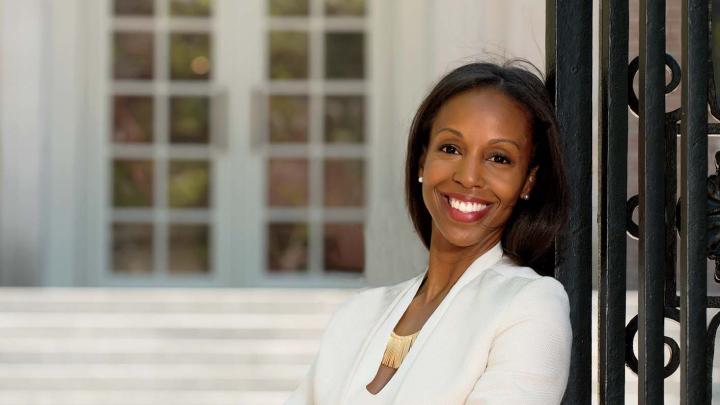Sarah Lewis ’01 remembers being approached by painter Jacob Lawrence while on a family visit to the Museum of Modern Art in New York. “I was very young—tiny—and I remember him breaking away from whatever storied crowd was around him, just to say hi to this African-American family in the museum.” Lewis’s parents weren’t artists themselves, but “They made sure I understood the importance of African-American culture.” Now assistant professor of history of art and architecture and African American studies, Lewis grew up with interests in painting, photography, and dance, thinking she’d continue them at the College. Instead, she was drawn to the social and political dimensions of the arts. Her clarity of thought on race in the arts has earned her public recognition rare for her field. In her course “Vision and Justice,” students look at daguerreotypes commissioned by Harvard naturalist Louis Agassiz, who attempted to prove different races were descended from different lineages. “The categories of race and citizenship are deeply tied to the category of aesthetics,” Lewis explains. “These were photographs that were instrumentalized for racial science.” While working on her Ph.D. at Yale, she came upon a previously unstudied speech by Frederick Douglass, who lived during the birth of both racial science and photography. Douglass anticipated the power of that new medium not just to dehumanize, but also to “read African Americans back into the human family,” Lewis argues with arresting precision, her self-possession mirroring Douglass’s own. This was why he became the most photographed American man of the nineteenth century: “Not the most photographed African-American man—the most photographed American man.”
Sarah Lewis

Sarah Lewis
Photograph by Stu Rosner
You might also like
Breaking Bread
Alexander Heffner ’12 plumbs the state of democracy.
Reading the Winds
Thai sailor Sophia Montgomery competes in the Olympics.
Chinese Trade Dragons
How Will China’s Rapid Growth in the Clean Technology Industry Reshape U.S.-China Policy?
Most popular
More to explore
Harvard Philosophy Professor Alison Simmons on "Being a Minded Thing"
A philosopher on perception, the canon, and being “a minded thing”







